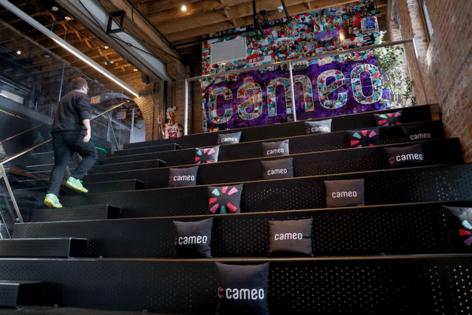Celebrity video site Cameo gets temporary restraining order against OpenAI
Published in Business News
A California federal judge issued a temporary restraining order Friday blocking OpenAI from using the word “Cameo” in connection with its Sora AI-generated video products.
Chicago-based Cameo, the celebrity video messaging website, filed a trademark infringement lawsuit last month alleging the recent rollout of OpenAI’s “Cameo” feature has created growing “consumer confusion” with its widely shared computer-generated videos.
The temporary restraining order, which expires Dec. 22, prevents OpenAI from using the Cameo name in connection with any of its Sora video products and services ahead of a court hearing on the matter next month.
“We are gratified by the court’s decision, which recognizes the need to protect consumers from the confusion that OpenAI has created by using the Cameo trademark,” Steven Galanis, Cameo’s co-founder and CEO, said in a statement. “While the court’s order is temporary, we hope that OpenAI will agree to stop using our mark permanently to avoid any further harm to the public or Cameo.”
Launched in September, the Cameo feature enables users of OpenAI’s Sora app to incorporate celebrity likenesses into their own AI-generated text-to-video creations. Jake Paul and Mark Cuban are among the celebrities that have “opened” up their likenesses to use on the platform.
Videos using deceased celebrities have also been popping up online, employing everyone from children’s TV host Fred Rogers to PBS painting guru Bob Ross in creative and unusual Sora-generated Cameo vignettes.
OpenAI, the privately held San Francisco-based technology company behind ChatGPT and a leader in the artificial intelligence space, issued an emailed statement in response to the temporary restraining order.
“We disagree with the complaint’s assertion that anyone can claim exclusive ownership over the word ‘cameo’, and we look forward to continuing to make our case to the court,” an OpenAI spokesperson said.
Cameo, the Chicago-based company that launched in 2017, pioneered an online platform for fans to buy personalized video greetings from an eclectic group of stars. It rocketed to unicorn status during the pandemic as virtual commerce took off, but the company has struggled with red ink and downsizing in the post-pandemic landscape.
The company currently has about 40 employees at its Fulton Market office and 60 overall, making it something of a David v Goliath lawsuit against OpenAI to address what Galanis called an “existential” threat to his business in a Tribune interview last month.
Meanwhile, OpenAI has rapidly grown into a tech behemoth with more than 800 million weekly active users on ChatGPT and a valuation north of $500 billion. It has also spawned numerous lawsuits, including one filed last year by the Chicago Tribune and seven other newspapers alleging copyright infringement. The case, brought against OpenAI and Microsoft for allegedly using articles “without permission and without payment” to drive their generative artificial intelligence programs, is ongoing in a New York federal court.
The Cameo trademark lawsuit is seeking OpenAI be enjoined from using the words “Cameo” or “Cameos” in connection with its video services, as well as undisclosed damages.
A hearing on the potential issuance of a preliminary junction is scheduled for Dec. 19.
©2025 Chicago Tribune. Visit at chicagotribune.com. Distributed by Tribune Content Agency, LLC.












Comments